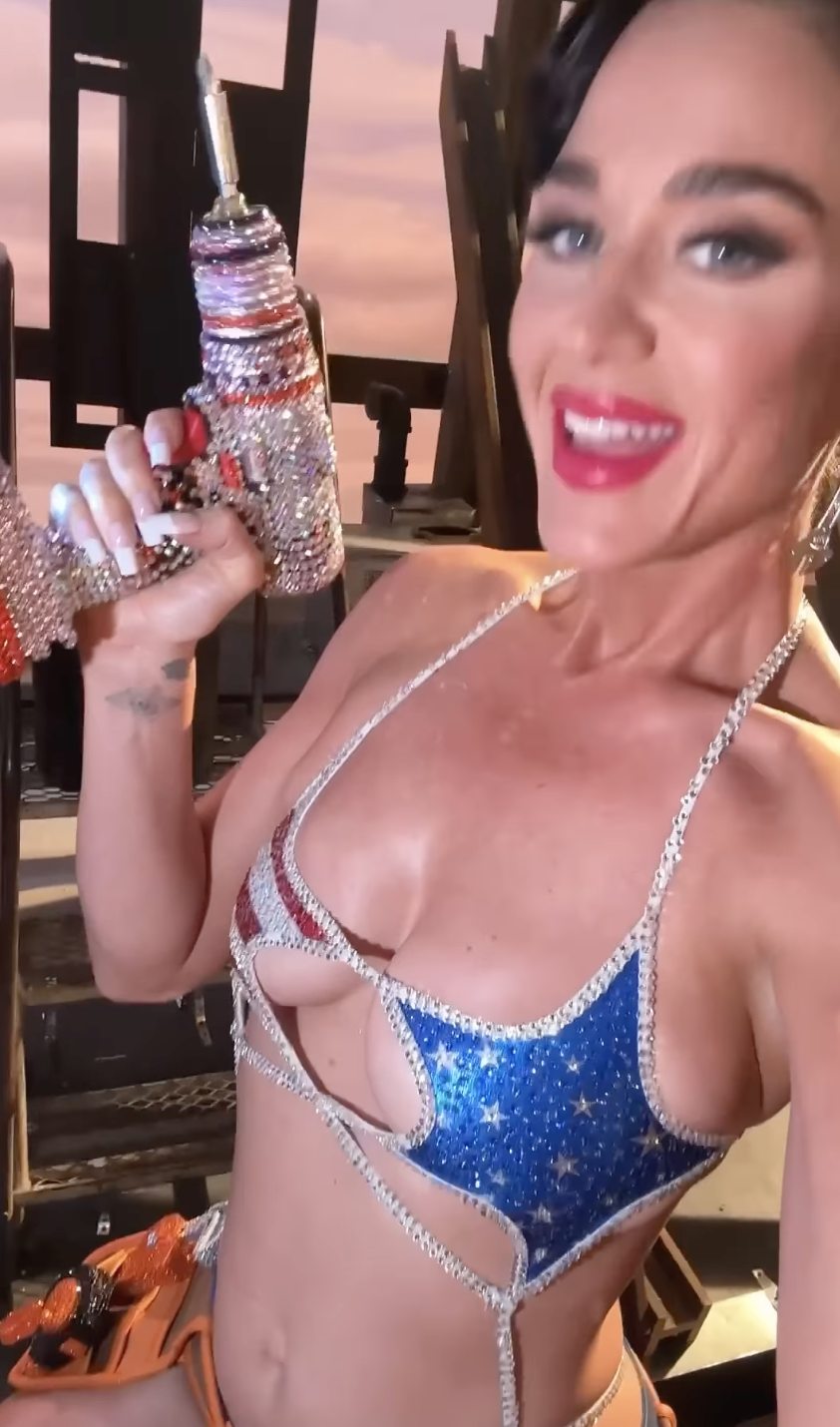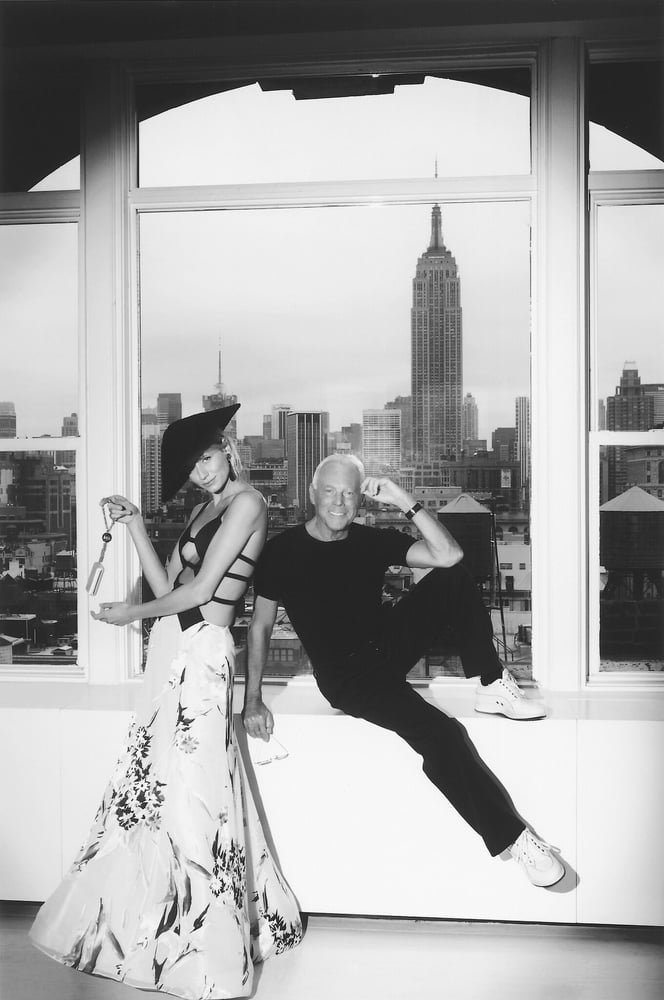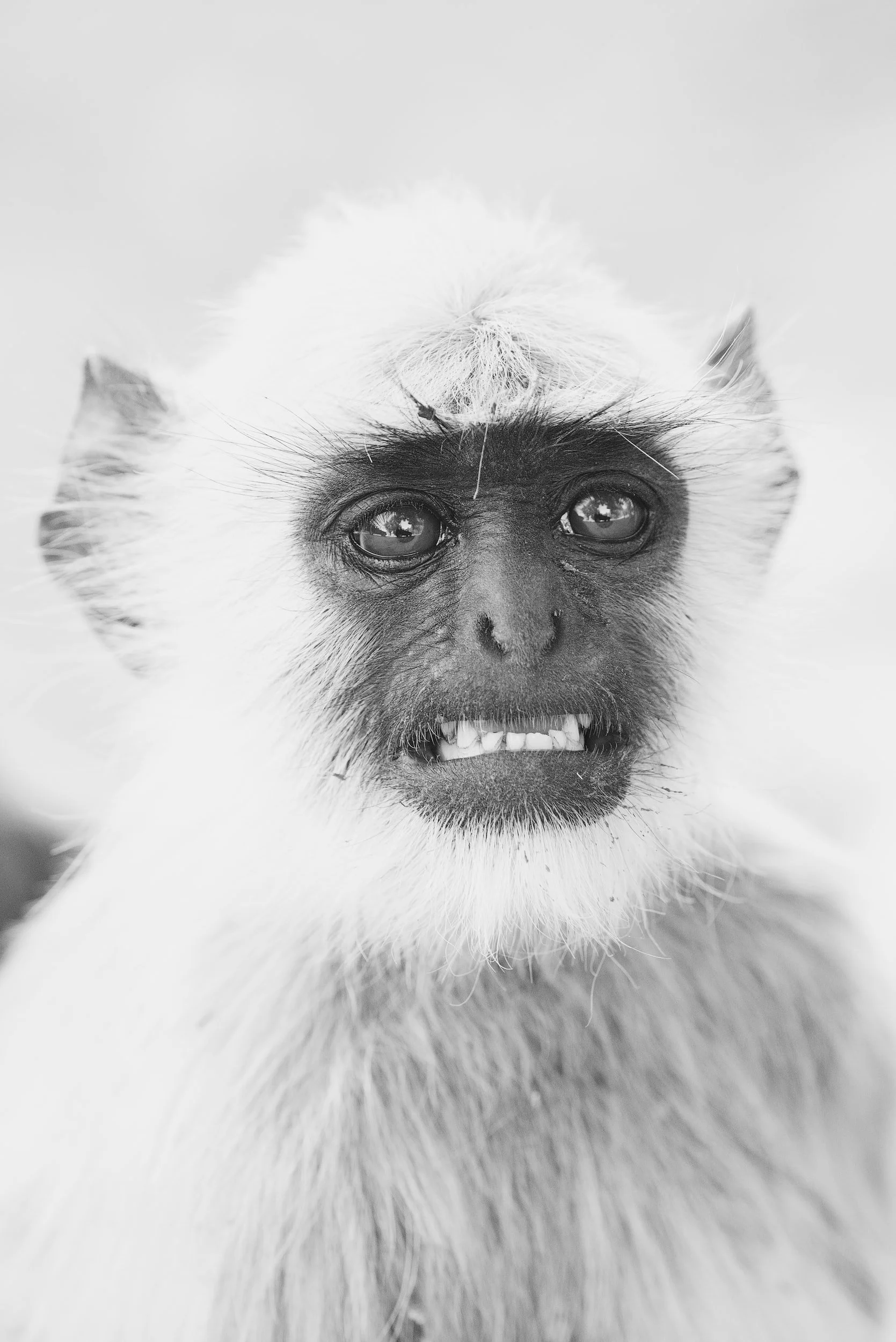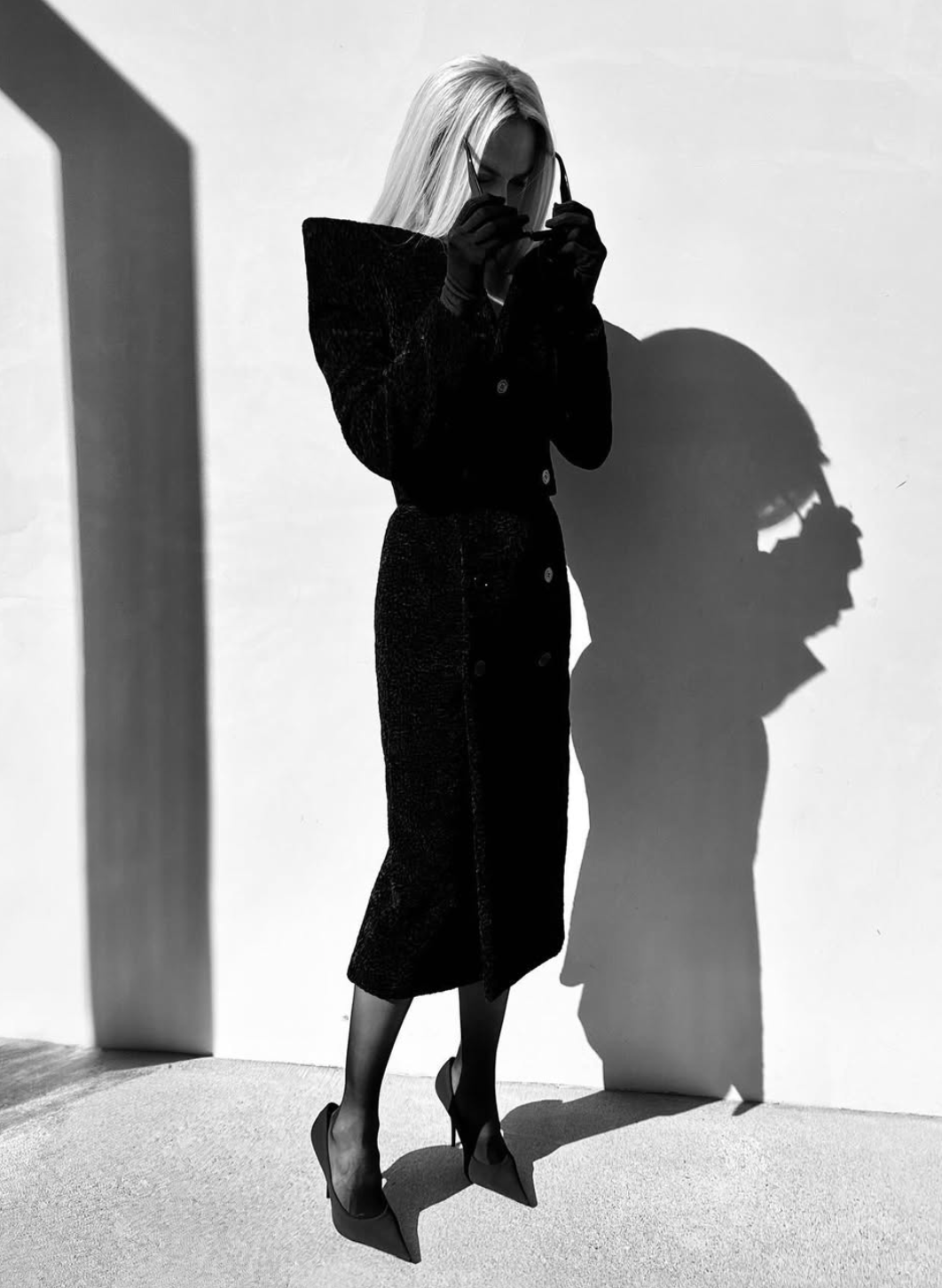In preparation for the first human mission to Mars, six volunteers take part in the ultimate dress rehearsal, living inside a year-long NASA simulation to understand the effects of isolation on the human mind. Following a crew of 6 led by female physicist Christiane Heinicke, RED HEAVEN director Lauren DeFilippo and Katherine Gorringe take viewers inside a year-long NASA psychological experiment. The goal is to unravel the human variables in team dynamics for future missions to Mars. Filmed by the crew members themselves, this immersive feature documentary reveals what remains when people are pushed to their limits to survive on a new planet.
Two HI-SEAS crew members in their “space suits” venturing out into the simulated Mars landscape. As seen in Red Heaven directed by Lauren DeFilippo and Katherine Gorringe. Photo credit: Brendan Hall.
Giulia: How did the idea come up to film something like this?
Lauren DeFilippo & Katherine Gorringe: We were finishing up graduate school at Stanford University, studying documentary film, in the heart of Silicon Valley at a time when space exploration and traveling to Mars had reemerged in the public consciousness. It was also the moment when climate change was becoming a more prominent threat to the future of humanity. We wanted to interrogate this new fascination with sending humans to Mars.
Giulia: What does this dream of living on Mars say about our culture, about human beings?
Lauren DeFilippo & Katherine Gorringe: We both were contending with how to imagine the future at a time when the Earth is in crisis. We live in a present full of invention and progress but also facing environmental degradation and societal fracturing. In a way, RED HEAVEN was our mode of expressing an uncertainty about what the future holds.
We were interested in the complex, human side of the story – the intensity of living in a place that is totally inhospitable to us as a species all the while being completely isolated from everything you’ve ever known. We felt that was the most fascinating part, yet it was being repeatedly overlooked in the race to get to Mars.
We started to research possible stories that spoke to this question and we quickly learned about the Hawai’i Space Exploration Analogue and Simulation, where six people would soon be entering a small dome where they would live isolated from the rest of the world for an entire year as if they were on Mars. We immediately knew this was our story. These six crew members of HI-SEAS were actually going to act out living on Mars, and they would be actually living in this world for an entire year – that was irresistibly intriguing.
Giulia: How long did it take to make the film?
Lauren DeFilippo & Katherine Gorringe: From concept to finish it took about five years. We started mid-2015, right before the crew entered the dome at the end of August 2015. And we finished editing in early 2020.
Giulia: Can you share a story about filming; anything that you found interesting along the way with your filming journey.
Lauren DeFilippo & Katherine Gorringe: The production of RED HEAVEN was very unique because essentially what we made is a found footage-style film – but we didn’t “find" it, we collaborated in the filming. So in the first few months of the mission, it was just one crew member who captured all the footage for us. She would dropbox clips for us from time to time, but we soon realized that as the discord amongst the crew started to build, we were seeing only footage of her and one other crewmate who she was closest to in the dome. We asked the others to start filming more of themselves, and that opened everything up. They began to use the cameras as a way of expressing the intense challenges they were going through in isolation. It became an emotional outlet for me them, and we soon started to see their distinct experiences.
Giulia: Did the film change from your original idea for the film as you were filming or in post?
Lauren DeFilippo & Katherine Gorringe: We really found RED HEAVEN in the edit. Our original idea was to incorporate outside interviews and archival footage that explored ideas about Mars exploration and human nature. The more we edited, however, the more we realized we had to focus in on the story of these six people in the dome and that their intimate experience spoke to everything we wanted the film to speak to. At one point in the edit we got some very good advice from an experienced editor who told us the best thing we could do was to impose limitations on ourselves. So we decided to do an experiment: restrict ourselves to only working with the footage that the crew had shot themselves – no outside shots or interviews – and that’s when we really started to discover the film.
Giulia: What were the challenges in making RED HEAVEN?
Lauren DeFilippo & Katherine Gorringe: In a way, RED HEAVEN is a casting nightmare for a documentary. You need drama to make a film, and the people chosen for mock and real Mars missions are by definition low drama, because that’s what you need to survive this stressful lifestyle. So we found ourselves trying to tell a story about the least dramatic people you can find. But as we got to know these six wonderful people, we realized that they contained a multitude of experience, emotion and thoughtful reflection.
Giulia: What were the particular successes that you had in making RED HEAVEN?
Lauren DeFilippo & Katherine Gorringe: Our biggest success was probably getting access to this story. The researchers and the crew were very committed to the science and not at all interested in compromising that to participate in a documentary. It took building relationships with each person involved and matching their commitment to the project to be able to make the film.
This was also the first time either of us have produced a film independently, so there have been many lessons learned about pitching, fundraising from scratch, and putting together the right team to create an environment for a successful film to be made.
Giulia: Was there something special technically that you utilized in making RED HEAVEN - for example: your cameras or sound or editing etc… and why were these important?
Lauren DeFilippo & Katherine Gorringe: RED HEAVEN was shot with every camera imaginable. Inside the dome they were shooting with point-and-shoot cameras, GoPros, DSLRS, phone cameras – you name it! And we shot the landscape photography in 4K with C300s and drones. So basically we run the gamut of technical approaches.
Giulia: You completed the film before the global pandemic and before quarantining became an everyday reality in our lives, so it would be interesting to hear your thoughts on the film through that lens.
Lauren DeFilippo & Katherine Gorringe: We had just put the finishing touches on RED HEAVEN when our original premiere at SXSW was cancelled due to Covid-19, and suddenly the film was cast in a very different light. As the world started to issue stay-at-home orders and the words “social distancing” became common parlance, we gained a new understanding for what our subjects went through – living together while separated from the rest of the world, everyday a struggle against the pressures of boredom and isolation. RED HEAVEN asks questions that we are all asking ourselves right now, about what we can live without and what we really need to survive and thrive. Making this documentary has taught us about the unique ability humans have to adapt. That’s a true power that, in this unprecedented moment, we all need to keep reminding each other we have.
Giulia: What do you want audiences to take away from RED HEAVEN?
Lauren DeFilippo & Katherine Gorringe: We hope that RED HEAVEN inspires audiences to look at their own fundamental needs as human beings, what they can and can’t live without, and that they come away with a question about why humans strive to explore and expand our boundaries. And when the credits come up, we hope everyone is infused with a love for Earth in all it’s natural glory that we so often take for granted.
RED HEAVEN is available now to rent or own on AppleTV and Altavod courtesy of Utopia.





































